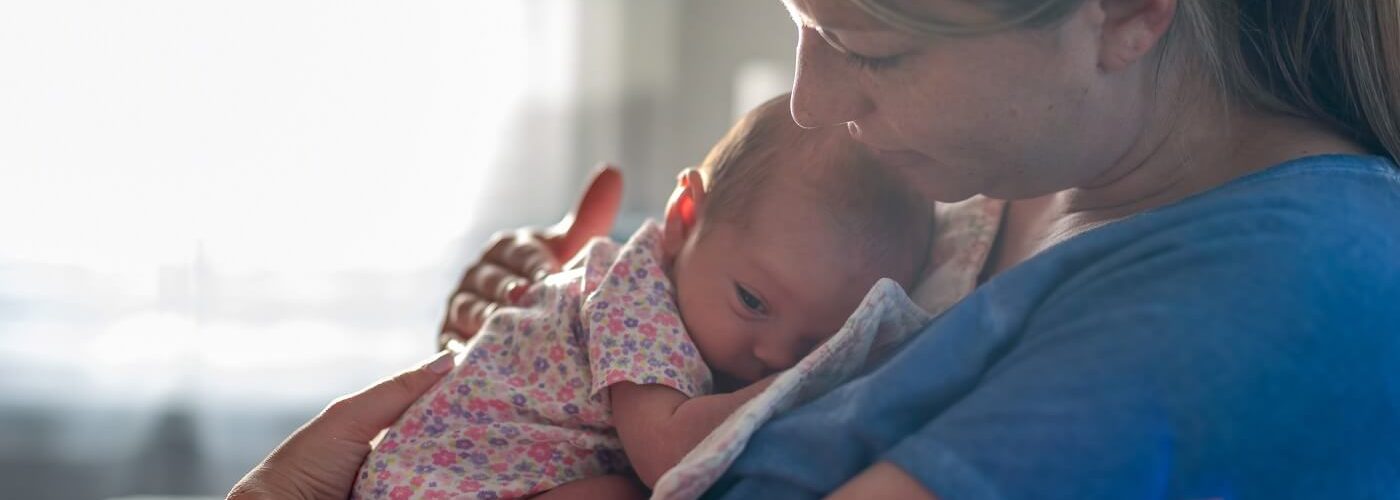
- Nearly half of women (49%) are delaying having children due to fears about the state of the UK and the wider world
- Lack of cash stopping women from adding to their families – and from becoming mothers for the first time
- Former Strictly Star Ola Jordan comments on the survey and says it’s wrong to blame women for putting their careers first
According to the Office of National Statistics, the number of babies being born in the UK is falling. The same report shows over 50% of women born in 1990 had not had children by 30 – compared to 18% of the same cohort in 1971, while the United Nations estimate the average childbearing age in the UK is set to rise to 31.5 years old by 2042.
With help from leading research company GfK, IVI commissioned a nationwide survey of women aged 25 – 45 in England, Wales, Scotland and Northern Ireland focusing on perceptions of motherhood and attitudes towards family planning.
“There’s a huge amount of information out there about fertility rates and how many babies are born in the UK each year, but we wanted to dig a little deeper and see what women really think and feel about becoming mothers for the first time, or about adding to their family,” comments Dr Mireia Galian, Senior IVF Consultant at IVI London. “At IVI, we are passionate about helping women build their families, so it’s important for us to know what motivators and barriers are at play.”
In this first section, we look at the reasons why the UK may be seeing its second lowest birth rates since records began in relation to to the social, political and economic context that we currently live in.
Becoming a mother and what it means today
As the UK recovers from the COVID-19 pandemic that has dominated recent years, new events unfold. Worries sparked by the war in Ukraine, new COVID variants and the rising cost of living are among the reasons 49% of British women are delaying starting, or adding to, their family, our new research finds. Our survey also found that over a quarter (27.2%) of women who have decided not to have children at all have taken that decision due to concerns about the state of the UK and the wider world.
When asked about the pandemic, the response is mixed. While a third of women (33.8%) say they delayed having children due to COVID-19, 66.2% of women say it was not a factor in their decision. However, the proportion of women who did delay having children due to COVID-19 is highest among women who haven’t yet started their families (47.4%). Although COVID-19 was a period of economic uncertainty, there were also concerns regarding the effects of the novel virus on pregnant women, as well as those trying to conceive. Fortunately, several medical bodies provided clear guidance about the impact of Coronavirus, as well as the approved vaccines, on pregnant women.
“We are now reaching the end of the COVID-19 pandemic, and we have plenty of reassuring information about the implications of COVID-19 during pregnancy and in very young children. Many people in our population are fully vaccinated and that should minimise the risk of severe infections and complications due to infection,” adds Dr Galian.
Money worries delaying parents-to-be
After the unprecedented challenges of recent years, many people are feeling financial restraints more acutely than in decades before. Meanwhile the lack of affordable housing exacerbated by an uncertain economic forecast continues to loom over young families. Our research found over a quarter (29.2%) of women who want kids haven’t yet had them due to a lack of cash. And in women aged under 36 with one or more children, 42.5% say that they won’t have any more kids due to insufficient financial resources. This follows recent research by Barclays which found 66% of expectant parents in the UK had delayed having a baby due to not having enough money to cover the extra expenses of a new-born.
Although social, political, and economic factors play an important role in future family-planning, women are also living in different times compared to previous generations. Data published by the Office of National Statistics (ONS) show that more women than ever before are having children later in life. In 2021, women aged over 40 had 30,500 babies, compared with women under 20 who had 13,738. Just twenty years ago, there were three times as many teenage mums as there were mums over 40. From seeking financial stability to prioritising their career to waiting to find the right partner, there are lots of reasons why becoming a mother later in life is now more common.
Former Strictly Come Dancing star, Ola Jordan, fulfilled her dream of motherhood in February 2020 after three years of trying to conceive, and one round of IVF. She comments:
“Women are often blamed for putting their careers before family, but as you can see from this survey, it’s much more complex than that, as there can be so many reasons. However, when a woman does want to become pregnant, I know only too well that it isn’t always that easy, particularly as women are having babies later than they did in previous years. I am grateful that science has advanced to allow more women than ever to achieve their dreams of becoming a mum.”
Thanks to technological advances in the field of reproductive medicine, there are solutions that can help couples overcome the most severe cases of male and female infertility. Although infertility is becoming less of a taboo in society, encouraged by movements such as the Language of Fertility, there are still common myths and misconceptions about both infertility and assisted reproduction.





Comments are closed here.